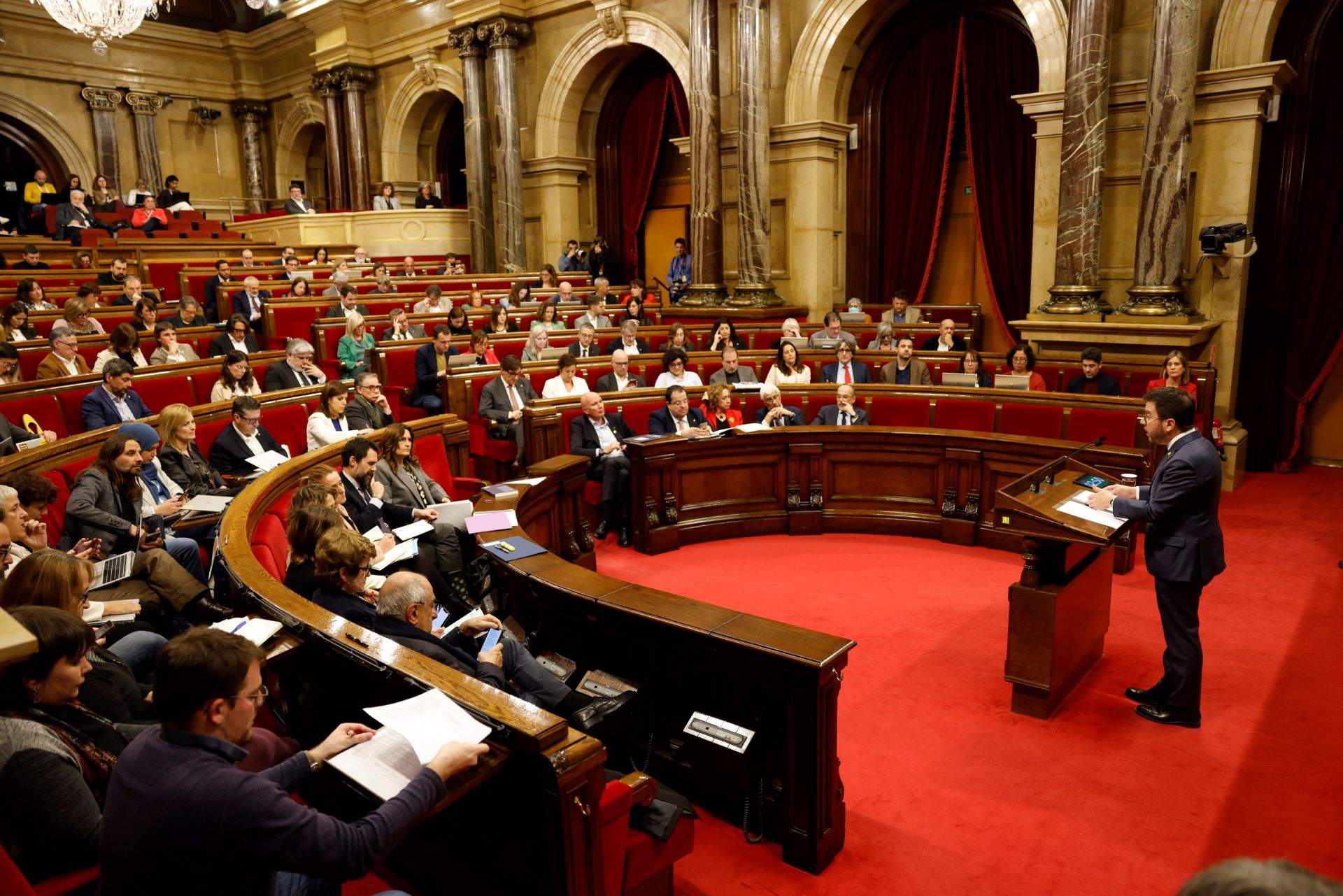The Catalan Parliament's special debate dedicated to the current drought and the climate change issue has shown, once again, the profound differences between government and opposition on how this subject is being approached. The situation right now is one of great concern: Catalan reservoirs are at historic lows and the six million people - three quarters of Catalonia's population - who live in the Ter-Llobregat catchment system are already in a drought emergency phase. The restrictions have irritated urbanites, but they have also angered people in the country, with loud demonstrations by cultivators and livestock farmers in recent weeks. Meanwhile, every week there are announcements about new infrastructure to guarantee water for Catalonia (when the current alternative is bringing water by ship). In the midst of all this chaos, Parliament has been the stage for the parties to set out their respective positions and differences on the matter and rail against the government for its lack of solutions. Looking skyward is no longer enough.
The speech given by Pere Aragonès was markedly optimistic. The president chose to celebrate the successes in the management of the severe drought by his executive, contrasting the measures his Catalan Republican Left (ERC) government has promoted with the steps taken by his predecessors. "In this drought, as a government, it has been up to us to get the country together, to do the work that had to be done, after years without investments due to either indebtedness or misunderstood austerity," claimed president Aragonès. In the same vein, he applauded the amount of infrastructure that is being put in place: two weeks ago, the government announced its intention to accelerate the extension of the Tordera desalination plant (Maresme county), and the construction of a plant at Foix (Alt Penedès county). He also underlined the "unquestionable leap forward" that has been made to adapt the country to a new climate reality during the current legislature. "The price is being paid for years of investment drought and lack of foresight," he concluded.
The opposition parties, however, joined forces to take apart his discourse. Socialist (PSC) leader Salvador Illa demanded that the president and the climate minister David Mascort show "a little more humility". "If we have done so well, why are we where we are?", asked Illa from the lectern. The head of the opposition called for the Catalan Water Agency and the government to "get their act together once and for all", since "they have no alternative". Illa undertook a comparison between the actions of the Catalan administration and those of the Spanish government, which has made "the effort" to guarantee that Catalonia can rely on water being shipped northwards to Catalonia from the desalination plant of Sagunt (Valencian Country).
For their part, Together for Catalonia (Junts) demanded an "urgent change of course in governance" from the Pere Aragonès executive in order to combat the drought. The president of the Junts parliamentary group, Albert Batet, called on the executive to "abandon confrontation in order to promote cooperation between administrations" and insisted on "transparency" on the cost of the water that could arrive by ship from Sagunt, since his party maintains that it will be insufficient. Along these lines, both Batet and Salvador Vergés reproached the government for "waiting for the solution to come from Madrid": "They suffer from Spanish-itis and are begging from the state". According to Junts, if farming, water or renewable energy were examination subjects, the executive would have "failed" them.
In the meantime, both pro-independence left-wing CUP and the alternative left Comuns shared the same diagnosis: the situation requires a "change of model". The two parties argue that this new model is not compatible with expansion of the Barcelona-El Prat airport, the Hard Rock leisure complex or the Fourth Beltway around metropolitan Barcelona. In fact, the CUP went further and asked Jéssica Albiach's Comuns not to support the government budget if there are budget items or commitments to develop any of these three major infrastructures. Finally, the two groups agreed to request more restrictions for the tourism sector because they find it "incongruous" that sectors such as farming or industry are the ones who suffer the most.
A new party summit
The parties shared a range of proposals with the government. But, beyond those specific propositions, there was also a demand shared by the two main opposition groups: both the PSC and Junts asked Aragonès to launch a new party summit on the drought. The last political meeting of this magnitude was held at the end of March last year, and on that occasion it ended with a resounding failure. Now, almost a year later, the situation has worsened markedly, and it is much more urgent to find shared solutions that do not exacerbate the political divide. The PSC proposed to call this dialogue space together again because "more fluid mechanisms to negotiate" are missing, while Junts demanded it as well in order to work on a "national solution" to the drought.

